Price and stock to confirm
Ed. Esopus Magazine, 2004. Size 29,5 x 23 cm. With more than 50 illustrations in color. INCLUDES CD NUMBER 2: MISSED CONNECTIONS. State: Used, very good. 114 pages.
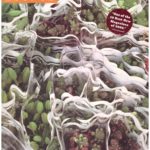 CONTENTS
CONTENTS
1- The Sissy Letters (1)
First in a continuing series of monologues written for «Esopus»
By Stephen Adly Guirgis
2- Contributors
3- Obituary Birthday: Kurt Cobain’s Art of Suicide
A meditation on the anguish and the poetry of the late singer-songwriter
By Pamela A. Ivinski
4- Artist’s Project: David Scher
«Into the Green», a suite of drawings from early spring 2003
5- Haunted
New York City Ballet’s resident choreographer finds mood and movement in György Ligeti’s music
By Christopher Wheeldon
6- 100 Frames: Chantal Akerman’s «La Captive»
A key sequence from the Belgian filmmaker’s 2000 Proust adaptation
Commentary by Amy Taubin
7- Alex Shear’s Object Lesson 2
(Poster)
8- Heir Meil
Communicating through collage, two brothers use a public service to forge a private bond
By Gerald and Peter Seligman
9- Artist’s Project: William Christenberry
The noted artist revisits a structure from his native Hale County, Alabama
10- Ten rivers to cross
How well does Oscar winner «Mystic River» hold up to repeated viewings?
By Edward McPherson
11- Artist`s Project: Hilary Lloydar
A series of 16 photographs by the British artist
12- Found Objects
Discovered at the estate sale of a San Francisco «vice cop»
Contributed by Johnny Brewton
13- New Voices: «Painting»
Periodically, «Esopus» will introduce the work of promising young writers. Our first offering
Fiction by Lev A C Rosen
14- Angus Trumble’s 1975 in retrospectç
One year. One page (A regular feature)
15- «Esopus» CD 2: Missed Connections
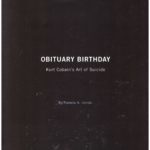 Obituary Birthday. Kurt Cobain’s Art of Suicide
Obituary Birthday. Kurt Cobain’s Art of Suicide
By Pamela A. Ivinski
Suicide even played a prominent role in Cobain’s journal account of an early sexual experience, ocurring when he was about 16. He relates a story about his first month as a regular pot smoker, noting that it coincided with «the Epitomy of my mental abuse from my mother». When pot failed to dull his pain, he decided to kill himself, but not, he announced dramatically, «without actually knowing what it is like to get laid». However, disgusted with the intimate odors of the «half-retarded girl» he’d chosen as the object of his desire, he failed to consummate the act. The girl’s family sought to have him punished, and he became known as the «retard fucker» at school (that is, when he bothered to attend). At his point, he wrote, he did attempt suicide: «I got high & drunk & walked down to the train tracks & layed down down & waited for the 11:00 train & I put 2 big pieces of cement on my chest & legs & the train came closer & closer. And it went on the next track beside me instead of over me». The experience «scared me enough to try to rehabilitate myself & my guitar playing seemed to be improving so I became less manically depressed». Eventually he met Krist Novoselic, who became his closest friend and the cofounder of Nirvana, and music evolved into his main reason to live. Yet he kept thoughts of suicide nearby at all times for their guilty comfort, and he increasingly self-medicated as a means of dealing with depression and the excruciating stomach pain he’d suffered since childhood.
From this moment, Cobain devoted his energies to achieving his dream of rock stardom, never imagining any other career path, never even holding a regular job for long. He predicted, with the wry humor that frequently lightens his otherwise agonized and often perverse journal rants: «Nirvana. 3 time Granny award winners, Nº 1 on billbored top 100 for 36 consecutive weaks in a row. 2 times on the cover of Bowling Stoned. Hailed as the most original, thought provoking and important band of our decade by Thyme & Newsweak». In a mock-up for a publicity flyer, he joked, «Nirvana Can’t Decide whether they want to be Punk or R.E.M. Indecision can often at times kill a band, and NIRVANA are suicidal». The journals are less the confessions of a tortured soul than Cobain’s workbook for becoming an icon, a safe place to scrawl material for lyrics, brainstorm PR campaigns that would appear suitably unscripted, draft loopy business letters, and practice surreal ripostes to befuddle prying interviewers.
And if he could be funny, Cobain could also rise above his disordered childhood to create music of tender and brutal joy. Bleach (named after a health-department campaign urging drug users to sterilize their works) sounds like what it is: a first album, recorded for $600 borrowed from a friend who never got his money back. But it’s also a remarkably sophisticated piece of work given its origins in the disturbed imagination of a young man who’d experienced little of the world outside his chaotic existence in small-town Aberdeen. «Blew,» the first track, introduces the band as practitioners of the rumbling Northwest «grunge» sound without being especially memorable except as proof that Cobain already knew how to sing. (Listen to the first U2 album to hear a vocalist who doesn’t yet have a clue.) On most of Bleach, Cobain howls in a rough voice, an instrument of torture that drills its way into your brain and stays there. But after a while, you start to appreciate the company, even if it hurts sometimes.
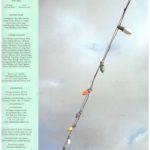 The second tune on Bleach twists a beloved relic of American pop culture, «The Andy Griffith Show,» into a scene of rape and murder committed by «Floyd the Barber,» plus Barney, Opie, and Aunt Bee, with Cobain as their victim. The chorus, repeating «I was shaved» and «I was shamed,» brings out another key Cobain theme: his overwhelming sense of humiliation and worthlessness. He sarcastically celebrates these aspects of himself in «Negative Creep,» then protests when others offer the same opinion in «Scoff» before launching into a pleading yet strangely rapturous chorus of «Gimme back my alcohol.» «About a Girl,» written for his girlfriend at the time, ironically contrasts gently loping chords and his growing penchant for Beatlesque melody with a cynical lyric that withholds rather than promises affection. «Swap Meet,» about a man and a woman who love each other more than they’ll admit, utilizes fierce, spiky riffs to emphasize another of Cobain’s strongly visual choruses: «Keeps his cigarettes close to his heart/Keeps her photographs close to her heart/Keeps the bitterness close to the heart».
The second tune on Bleach twists a beloved relic of American pop culture, «The Andy Griffith Show,» into a scene of rape and murder committed by «Floyd the Barber,» plus Barney, Opie, and Aunt Bee, with Cobain as their victim. The chorus, repeating «I was shaved» and «I was shamed,» brings out another key Cobain theme: his overwhelming sense of humiliation and worthlessness. He sarcastically celebrates these aspects of himself in «Negative Creep,» then protests when others offer the same opinion in «Scoff» before launching into a pleading yet strangely rapturous chorus of «Gimme back my alcohol.» «About a Girl,» written for his girlfriend at the time, ironically contrasts gently loping chords and his growing penchant for Beatlesque melody with a cynical lyric that withholds rather than promises affection. «Swap Meet,» about a man and a woman who love each other more than they’ll admit, utilizes fierce, spiky riffs to emphasize another of Cobain’s strongly visual choruses: «Keeps his cigarettes close to his heart/Keeps her photographs close to her heart/Keeps the bitterness close to the heart».
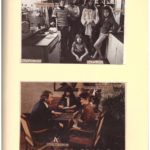 Soaked in feedback and distortion, «Bleach» rolls along with all the fervor and aggression of three musically ambitious young men pumped full of hormones, recreational drugs, and cheap beer, but with no better place to go than the parking lot behind the local convenience store. «Smells Like Teen Spirit», the opening track of Nirvana’s second album, Nevermind, picks up where Bleach left off, but ventures into more expansive emotional terrain. The alternating soft verses and hard chorus perfectly embody the simultaneous hopelessness and exuberance that characterize our extended American adolescence: Cobain’s coincident self-hatred and self-confidence writ large for a generation. To understand the song and album as the quintessential «slacker» statement is to ignore the frustration and longing for change inside the anguish and rage of the music, lyrics, and vocals. The blistering cho¬rus and final screaming refrain—»a denial» (repeated nine times)—invert the passivity of the song’s last verse, «I found it hard/it’s hard to find/oh well whatever nevermind.» The ultimate message is not only «whatever» used in the manner of the stoner who can’t get himself worked up enough to care. It’s also meant as a warning, as if to say, «You’re not listening and I act like I don’t care, but someday you’ll pay with your guilt and your tears».
Soaked in feedback and distortion, «Bleach» rolls along with all the fervor and aggression of three musically ambitious young men pumped full of hormones, recreational drugs, and cheap beer, but with no better place to go than the parking lot behind the local convenience store. «Smells Like Teen Spirit», the opening track of Nirvana’s second album, Nevermind, picks up where Bleach left off, but ventures into more expansive emotional terrain. The alternating soft verses and hard chorus perfectly embody the simultaneous hopelessness and exuberance that characterize our extended American adolescence: Cobain’s coincident self-hatred and self-confidence writ large for a generation. To understand the song and album as the quintessential «slacker» statement is to ignore the frustration and longing for change inside the anguish and rage of the music, lyrics, and vocals. The blistering cho¬rus and final screaming refrain—»a denial» (repeated nine times)—invert the passivity of the song’s last verse, «I found it hard/it’s hard to find/oh well whatever nevermind.» The ultimate message is not only «whatever» used in the manner of the stoner who can’t get himself worked up enough to care. It’s also meant as a warning, as if to say, «You’re not listening and I act like I don’t care, but someday you’ll pay with your guilt and your tears».
 «Nevermind» lets us have it both ways: The songs acknowledge fear and despair but make the experience bouncy and even uplifting—thanks also, of course, to Novoselic’s steadfast yet playful bass lines and Dave Grohl’s extraordinary, in-your-face drumming. «In Bloom» employs a simple singsong melody to present a harsh view of the audience that Cobain would come to despise: macho, gun-loving cretins who bellowed his words so loudly they couldn’t hear his pain. The song’s two short verses characterize adults as instinctual animals who procreate indiscriminately and then feel justified in pimping out or abandoning their offspring to serve their own needs («sell the kids for food»); after all, these already damaged children («bruises on the fruit») can always be replaced («We can have some more/Nature is a whore») when the parents move on to form new families. In «Come As You Are»—the third Never¬mind song in a row to reference firearms—Cobain sings of welcoming enemies as well as friends while reiterating (guiltily?), «And I swear that I don’t have a gun.» «Drain You» cheerily explores how love often returns us to an all-consuming state of infantile narcissism and dependency. Lovers are equated with newborns, and love itself with the hunger for a partner who is also a substitute mother («Chewyour meat for you/Pass it back and forth/in a passionate kiss»). Other phrases conjure up birth, physical and emotional sustenance, and drag addiction all at once («It is now my duty to completely drain you/I travel through a tube and end up in your infection»), their juxtaposition insinuating Cobain’s extreme and unfulfilled needs.
«Nevermind» lets us have it both ways: The songs acknowledge fear and despair but make the experience bouncy and even uplifting—thanks also, of course, to Novoselic’s steadfast yet playful bass lines and Dave Grohl’s extraordinary, in-your-face drumming. «In Bloom» employs a simple singsong melody to present a harsh view of the audience that Cobain would come to despise: macho, gun-loving cretins who bellowed his words so loudly they couldn’t hear his pain. The song’s two short verses characterize adults as instinctual animals who procreate indiscriminately and then feel justified in pimping out or abandoning their offspring to serve their own needs («sell the kids for food»); after all, these already damaged children («bruises on the fruit») can always be replaced («We can have some more/Nature is a whore») when the parents move on to form new families. In «Come As You Are»—the third Never¬mind song in a row to reference firearms—Cobain sings of welcoming enemies as well as friends while reiterating (guiltily?), «And I swear that I don’t have a gun.» «Drain You» cheerily explores how love often returns us to an all-consuming state of infantile narcissism and dependency. Lovers are equated with newborns, and love itself with the hunger for a partner who is also a substitute mother («Chewyour meat for you/Pass it back and forth/in a passionate kiss»). Other phrases conjure up birth, physical and emotional sustenance, and drag addiction all at once («It is now my duty to completely drain you/I travel through a tube and end up in your infection»), their juxtaposition insinuating Cobain’s extreme and unfulfilled needs.
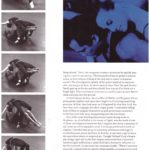 Was Kurt Cobain a «whining crybaby», «a loser, not a role model»? Role model, maybe not. But I don’t by the argument, expressed by one «Salon» letter writer, that «What always seems to be forgotten in the ‘tortured genius’ myth of Cobain is that he had choices». To the contrary, the more famous he became, the more he was «loved» by millions, the more his choices were drastically limited. Whatever trauma he suffered as a child —and from the vividness of the abuse stories in his writings I suspect it was far greater than we will ever know—left him emotionally ill- prepared to enter into adult life. At the moment when most of us were struggling with midterm exams and dorm-room dramas, he was shoved under an unforgiving international spotlight. After his «Vanity Fair» experience in particular, how could he have trusted that anything he told a doctor or fellow i? -step participant wouldn’t find its way straight to the tabloids? Cobain epitomizes how we are most drawn to those artists whose need for approbation and attention is even greater than their enormous talent. And then when they fuck up, we pretend not to understand why. Cobain showed he understood this when he remade Süskind’s Perfume into his own self-portrait in «Scentless Apprentice.» The book’s antihero, lacking any kind of human scent, formulates a special fragrance to sprinkle on himself for the purpose of compelling a crowd of undesirables to slice him to shreds and consume his flesh. This act represents the only thing they’d ever done «out of love,» as Süskind explains. «Teen Spirit» had the very same effect. Though Cobain derived little pleasure from the devotion of his fans, he nonetheless apologized repeatedly in his suicide note for having lost enthusiasm for the music they venerated. At that point, he wrote, it was better to burn out than fade away.
Was Kurt Cobain a «whining crybaby», «a loser, not a role model»? Role model, maybe not. But I don’t by the argument, expressed by one «Salon» letter writer, that «What always seems to be forgotten in the ‘tortured genius’ myth of Cobain is that he had choices». To the contrary, the more famous he became, the more he was «loved» by millions, the more his choices were drastically limited. Whatever trauma he suffered as a child —and from the vividness of the abuse stories in his writings I suspect it was far greater than we will ever know—left him emotionally ill- prepared to enter into adult life. At the moment when most of us were struggling with midterm exams and dorm-room dramas, he was shoved under an unforgiving international spotlight. After his «Vanity Fair» experience in particular, how could he have trusted that anything he told a doctor or fellow i? -step participant wouldn’t find its way straight to the tabloids? Cobain epitomizes how we are most drawn to those artists whose need for approbation and attention is even greater than their enormous talent. And then when they fuck up, we pretend not to understand why. Cobain showed he understood this when he remade Süskind’s Perfume into his own self-portrait in «Scentless Apprentice.» The book’s antihero, lacking any kind of human scent, formulates a special fragrance to sprinkle on himself for the purpose of compelling a crowd of undesirables to slice him to shreds and consume his flesh. This act represents the only thing they’d ever done «out of love,» as Süskind explains. «Teen Spirit» had the very same effect. Though Cobain derived little pleasure from the devotion of his fans, he nonetheless apologized repeatedly in his suicide note for having lost enthusiasm for the music they venerated. At that point, he wrote, it was better to burn out than fade away.
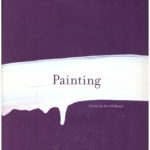 Those who reject Cobain as a loser or quitter probably cannot understand what it feels like to live an existence where «I Hate Myself and I Want to Die» is not just a mordantly amusing song title but also an interior monologue playing on an endless loop: I hate myself I hate myself I hate myself I hate myself I hate myself I hate myself I hate myself I want to die. If you’ve never heard that in your head all day long, or have never had to try to reason, to coax, to trick it out of the brain of a friend or parent or sibling, then you ought to thank your god, if that’s your thing, or thank your lucky stars that mental illness has not touched your life, and knock on wood for good measure to keep it that way.
Those who reject Cobain as a loser or quitter probably cannot understand what it feels like to live an existence where «I Hate Myself and I Want to Die» is not just a mordantly amusing song title but also an interior monologue playing on an endless loop: I hate myself I hate myself I hate myself I hate myself I hate myself I hate myself I hate myself I want to die. If you’ve never heard that in your head all day long, or have never had to try to reason, to coax, to trick it out of the brain of a friend or parent or sibling, then you ought to thank your god, if that’s your thing, or thank your lucky stars that mental illness has not touched your life, and knock on wood for good measure to keep it that way.
That Kurt Cobain found a way to quiet his self-contempt long enough to write a line as fiercely beautiful and true as «a mulatto/an albino/a mosquito/my libido» makes him my hero and still fuels me, even if it still hurts. I loved him—I still love him—as much as a person can love someone they never had a chance of meeting, and I’m not the only one. No, I’m not the only one.
